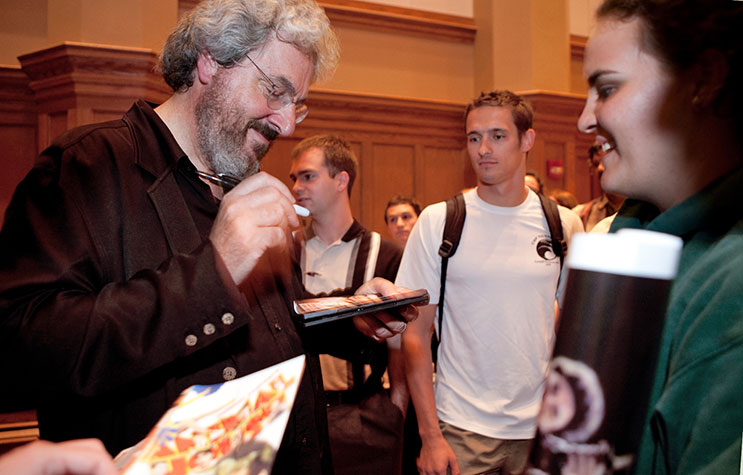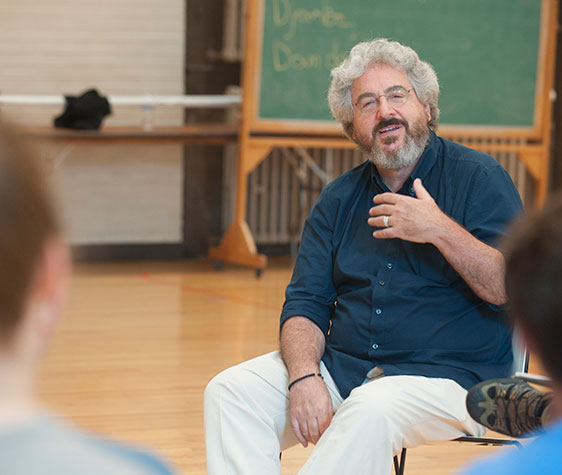
Over? Did you say “over”? Nothing is over until we decide it is! Was it over when the Germans bombed Pearl Harbor?
— From “Animal House” [Harold Ramis with Douglas Kenney and Chris Miller]
Toga! Toga!
— From “Animal House” [Harold Ramis with Douglas Kenney and Chris Miller]
He slimed me!
— From “Ghostbusters” [Harold Ramis with Dan Akroyd]
With his round glasses, amused diction and stiff, patrician carriage, Harold Ramis (AB ’66), was the coolest nerd in the room, a deadpan bomb thrower, an ironist for the ages. You were never sure if he was joking. That was half the joke.
As a writer and director, Ramis, who died Monday, Feb. 24, 2014, was responsible for some of the defining comedies of the last 30 years, including “Animal House” (1978), “Caddyshack” (1980), “Stripes” (1981), “Ghostbusters” (1984) and “Groundhog Day” (1993).
Yet for all his anarchic wit, Ramis was also a sincere intellectual, a lifelong reader more comfortable discussing literature and politics than pop culture or the movies, said Henry Schvey, professor of drama and of comparative literature in Arts & Sciences.
“Harold was a great writer, director, actor and teacher,” said Schvey, who knew Ramis for more than 20 years. “It was not only the humor, but also the intellectual content of his films — the cultural changes depicted in ‘Animal House,’ the idea of cloning in ‘Multiplicity’ — that gripped his imagination.
“In many ways, his characters were really self-portraits,” Schvey said. “Beneath the odd, geeky surfaces, there was always a sensitive soul.”

A man who knew he was loved
A two-term member of WUSTL’s Board of Trustees (1997-2005), Ramis returned frequently to campus and often spoke publicly about his life and work.
But Ramis’ real passion was engaging directly with students, said Barbara Rea, director of the Assembly Series, which hosted Ramis four times.
“Harold was a great talent but also a kind person and a lovely man,” Rea said. “He always made a point of meeting with as many students as possible. He loved the humanities and was so generous with his time and energy.”
Whether leading a campus workshop or talking one-on-one with young writers and actors ,“he’d just light up,” Rea added. “It was hard to drag him away. We’d barely get to the lecture on time.”
New York playwright Daniel Ho graduated in 1993, the same year Ramis received his honorary doctorate. He remembers the excitement among the Commencement audience packed into Brookings Quadrangle.
“Everyone exploded into rock star-levels of adulation,” Ho said. “As he walked down the aisle, all you could hear were shouts of ‘Egon!’
“The look on his face was a mixture of embarrassment and pride,” Ho added, “but it was also the look of a man who knew he was loved.”